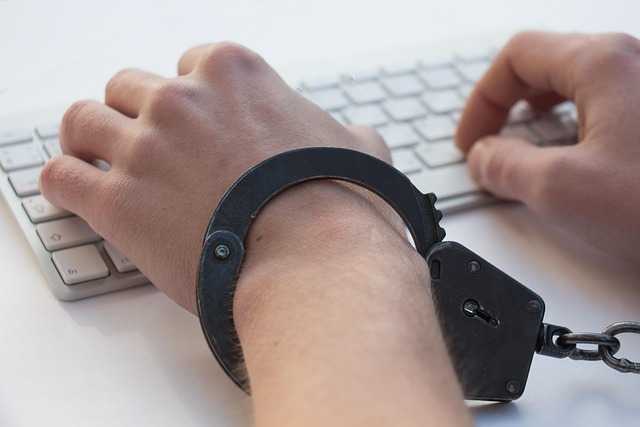Successful Airbnb hosts don’t just have property. They have an attitude. They’ve got good hosts. And they care about their guests. In fact, every aspect of running your business and having a comfortable life is dependent on your financial health. Selecting the best bank account for airbnb is an overwhelming decision: if you make the wrong one you’ll waste time, money, and have a huge stress attack during tax season. For many new Airbnb hosts, it’s easy to mix up your personal and rental finances. This creates a complicated world of transactions. This guide walks you through everything you need to know about choosing and managing the right bank account for your Airbnb business so your endeavour is as profitable and organized as possible.
Why Your Personal Checking Account Isn’t Enough
What can go wrong? Let your Airbnb money just move into the bank account where you shop for groceries and pay your mortgage. It is unwise. First of all, it creates a bookkeeping nightmare. When time comes to file tax returns, you will have to spend hours trying to sort through months of statements, manually separating business expenses from personal expenses. All of this can be extremely tedious, and it’s easy to miss deductible expenses (or make costly mistakes). Now, there is another problem. Assuming there are 2 companies, then it’s likely that there won’t be separate business/personal accounts. If you’re operating as an LLC (Limited Liability Company), where all of your personal assets are protected in case of lawsuits from the business (although not against you personally), In a lawsuit, for example, a court could rule that you and your LLC are not separate corporations, and would consider your personal savings, car, and home liable for liability. Setting up a dedicated business account and keeping the legal separation going is the first and most important step. You need security, and that starts with a separate business account.
Key Benefits to Look for in a Bank Account for Your Airbnb Business
Not all business bank accounts are created equal. Your Airbnb hosting business has different needs than a physical store or a freelance consultant. Here are some key features to look for when searching for the best bank account for Airbnb income.
Low or No Monthly Fees
A lot of banks charge a monthly maintenance fee for their business account. These fees can usually be waived by maintaining a minimum daily balance and/or paying a minimum monthly deposit. Since Airbnb is a seasonal operation or may fluctuate on how much it’s booked out, a low or waive able maintenance fee is best. You don’t want to end up paying the bank for the privilege of holding your money in a slow month. As an Airbnb host, you are constantly on the go. You want a bank that has a great and easy to use mobile app with which you can deposit checks online and transfer funds right away and also monitor your cash flow from anywhere. The ability to take a picture of a receipt for a repair and immediately categorize it as an expense is going to revolutionize how you record and track expenses.
Property-Management Focused Platforms
Pros: Designed specifically for rental income. Simplifies banking, bookkeeping, and expenses management and performance analytics. Often includes rent payment processing capabilities. Cons: Not as mature (or therefore longer-standing) as traditional banks. Lack of offerings, such as business loans. Best For: Real host and property manager with one or more properties that want an all-in-one financial command center for their business while traditional banks are a good option, a slew of financial technology (finch) companies have begun producing products specific to property managers and landlords. These platforms, like Baselane, are well worth the time as they were built with your exact use case in mind. And similar platforms are much more than just a banking solution.
Once you’ve chosen the right account, you want it set up correctly.
Choose your Business Structure: Do you have a sole proprietorship, an LLC, or something else? This will determine what documentation you’ll need. Gather Documentation: Generally you’ll need your Social Security Number (for a sole Prop), or your Employer Identification Number (EIN) from the IRS (for LLC/corporation), your personal government-issued ID, and your business formation documents (e. g., Articles of Organization for an LLC). Some banks may also require a “Doing Business As” (DBA) certificate. Link to Airbnb: In your Airbnb account settings, change your payout method to this new business bank account. You can set up direct deposit for easy flow of income. Set up Integrations: You can connect your new bank account immediately to your accounting software of choice. This ensures all transactions will be recorded, organized, and documented on day 1.
Mastering Financial Management: Beyond the Basic Account
Ions pile up. Set aside 30 minutes a week to look over your accounts, make sure all expenses are categorized and reconcile your books. It makes year-end accounting a breeze. Opening this account takes only the first steps. The right management is the real secret to keeping such folders, or your accounting software organized in detail and categorizing each business expense. Account to your personal account on a regular basis. This reinforces the separation between you and your business and helps with personal budgeting. Set Aside Money for Taxes: Open a linked high-yield savings account and automatically transfer a percentage of every payout (25-30% seems to be a conservative starting estimate) into this tax fund. Then when your quarterly estimated taxes are due the money will be waiting for you and you’ll never go through a stressful scramble. This is one of the core practices for which you want security in your financial planning. Reconcile Frequently: Don’t let transacts. A
Security: Protecting Your Business Income
At this point, being able to control a significant amount of income streams online is incredibly important. You absolutely must take security measures to protect your hard earned money. Just make sure you select an account that is FDIC insured (or NCUA insured (for credit unions). And it will protect your deposits up to $250, 000. Make sure you enable 2FA on both your banking account and Airbnb account. Have a strong, unique password, and be careful of phishing attacks. It’s also worth having a dedicated business account as it separates your business money from your personal accounts (as if one or the other gets compromised, there’s just a significantly lower chance that everyone else’s accounts get stolen).
Conclusion
You host Airbnb for much more than it is a side hustle. It’s an enterprise that deserves the kind of professional-grade financial tools you would get if you were a full-time professional. By moving to a dedicated business account from your personal checking account and instead choosing one, whether it’s out of your local bank or through an online nonbank, or through a service like Baselane, you’re first setting yourself up for growth, compliance, and profit for years to come. You want security, organization, and efficiency, and the right bank account delivers just that. If you take the time to make a well-informed choice, you’ll empower your hosting business to run smoothly for years, giving you peace of mind so you can devote more time to doing what you do best: creating great experiences for your guests.




